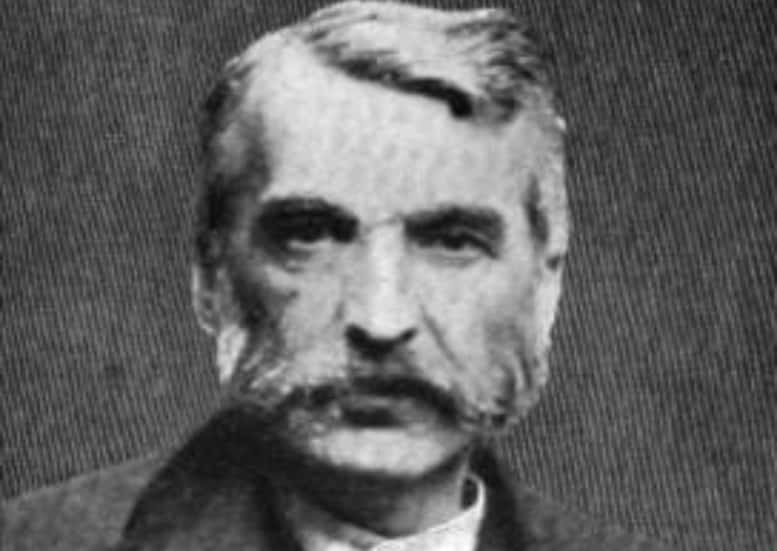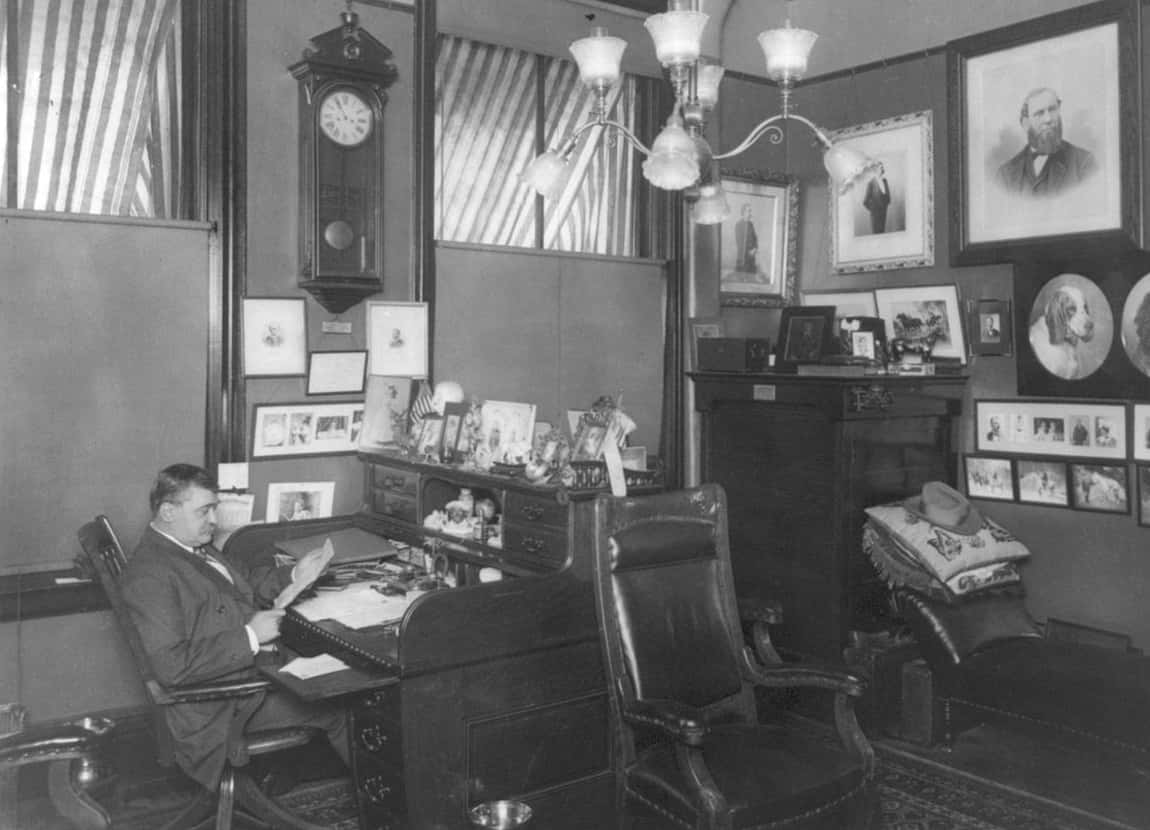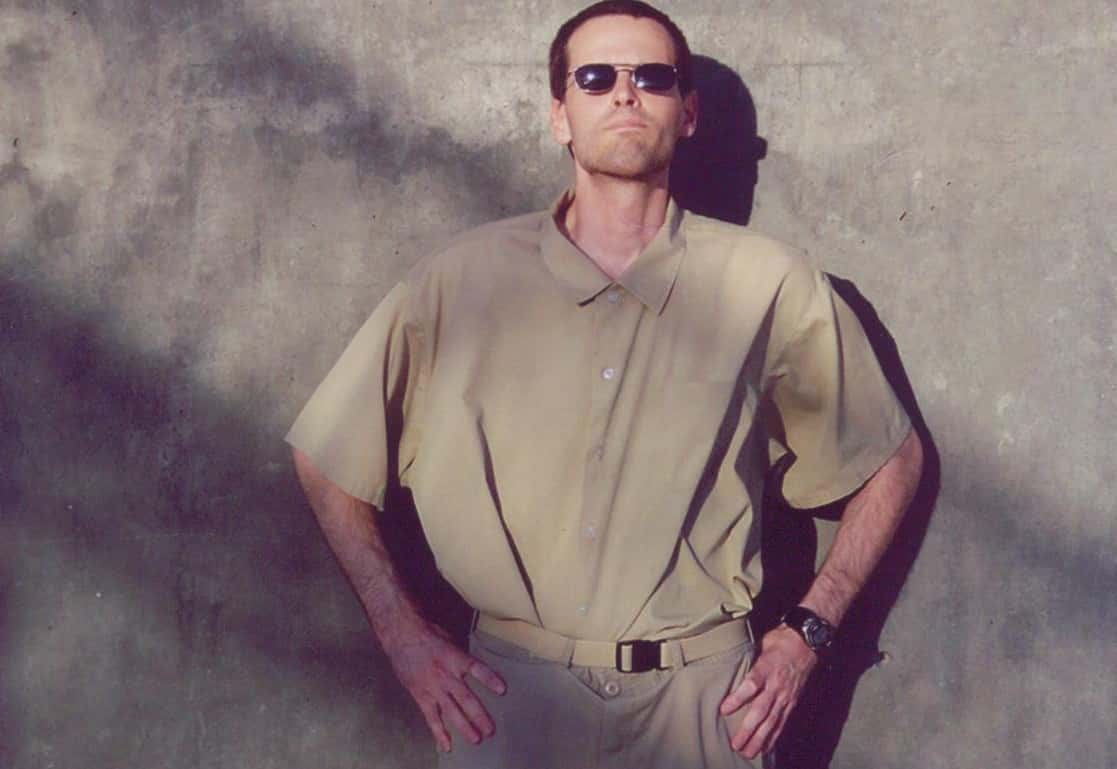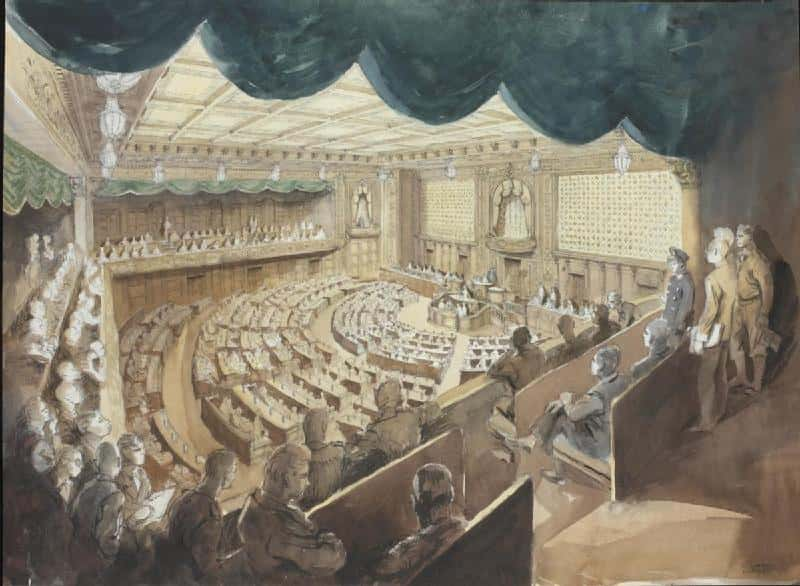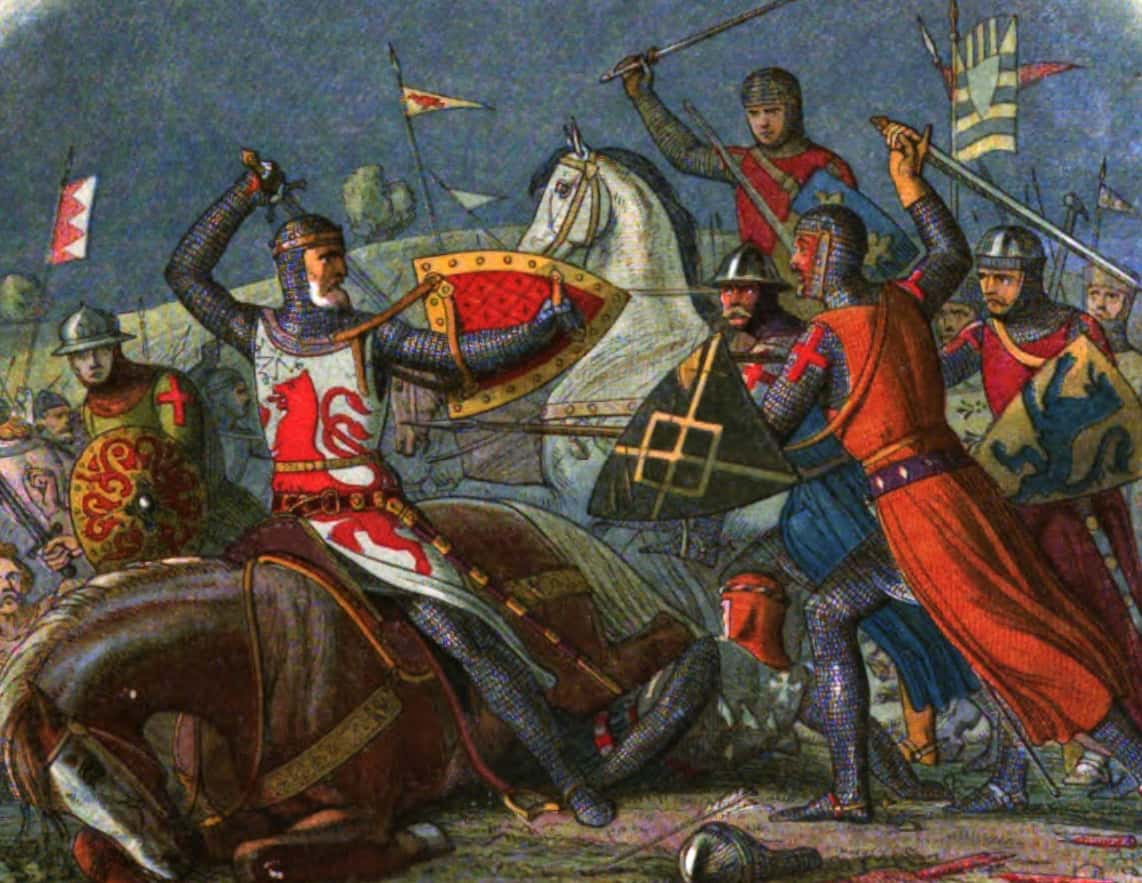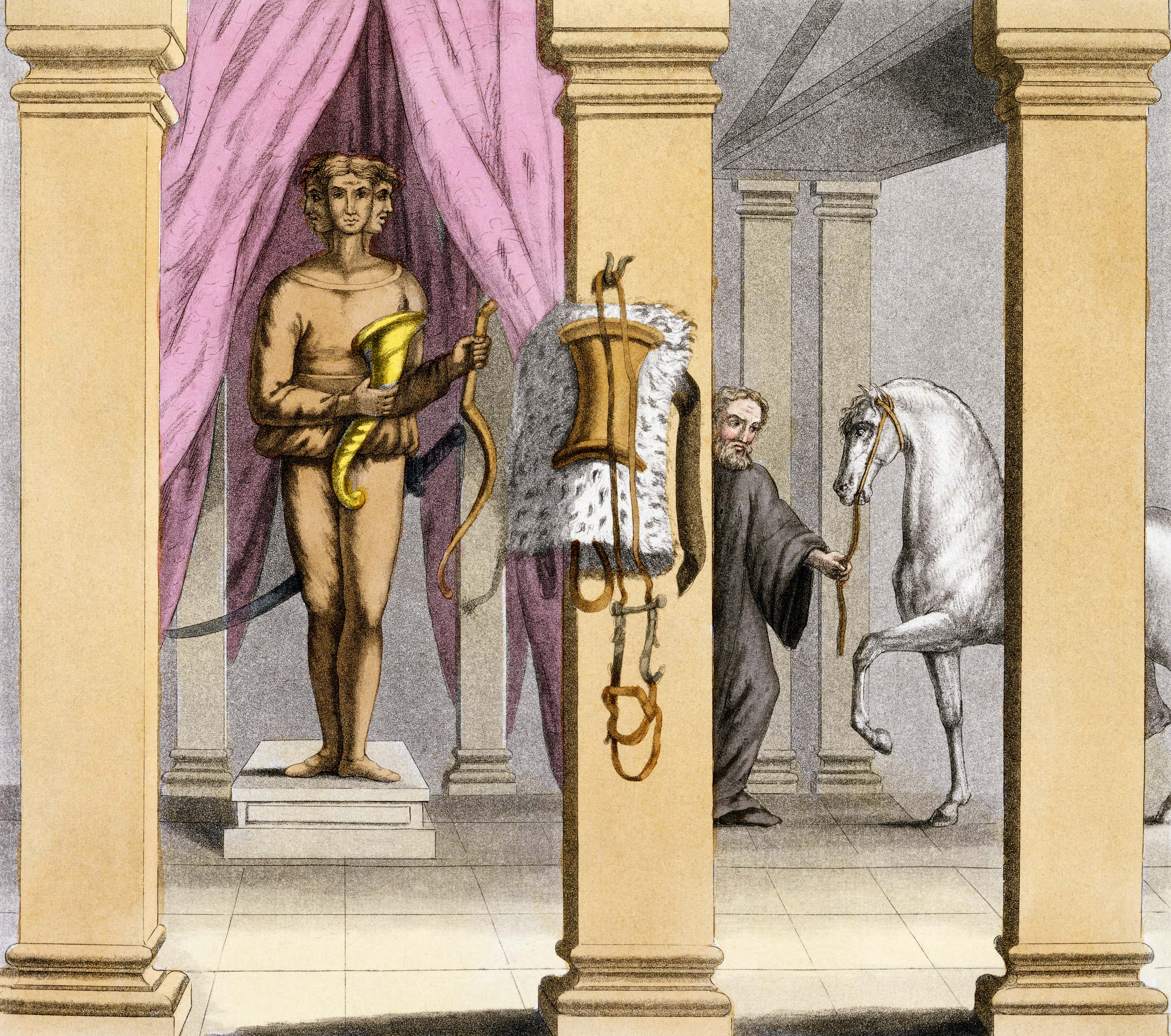Despite bevies of detective novels, superhero movies, and true crime documentaries, most law enforcement officials will concede that fighting crime is usually pretty mundane: a parking ticket here, a convenience store hold-up there. There are very few costumed ne’er-do-wells wreaking havoc on downtown Metropolis.
But every so often, a special kind of criminal appears, one whose hunger for revenge, delusions of grandeur, or just plain terribleness pushes them into the realm of cartoon supervillainy. Here are 50 facts about villains the world wanted us to forget.
1. The Killdozer
For most people, the municipal government rejecting a zoning proposal wouldn't be enough to launch a rampage of revenge and destruction, but as the world would soon find out, most people were not Marvin Heemeyer. Heemeyer had asked the town council for Granby, Colorado, to halt the construction of a concrete plant next to his land.
When they refused, Heemeyer retreated to his secret lair—err, his muffler shop—for a whole year, building the ultimate weapon: the Killdozer.
2. Rampage
On June 4, 2004, Heemeyer unveiled his Killdozer, a 46-tonne Komatsu bulldozer fitted with foot-thick panels of steel and concrete. Secure behind the wheel of his absurdly powerful wrecking machine, Heemeyer cut a path of destruction through the town. In just two hours, the Killdozer knocked down 13 buildings and cut off the town’s gas supply.
3. The Best Laid Plans
With steel-and-concrete armor, bullet-proof plastic, and three gun-ports for Heemeyer’s rifles, the Killdozer was all but indestructible; Granby police could do little but stand by and watch as Heemeyer crashed through building after building. Eventually, the National Guard was called in, armed with Apache helicopters and anti-tank missiles. Heemeyer's attack was inevitably going to come to an end—but few people expected the tragedy that was coming.
4. Scrapped
Jammed into the foundation of Gamble’s Hardware Store, the Killdozer was completely immobilized. Rather than surrender, Heemeyer turned his rifle on himself. His machine was dismantled piece by piece and sold off for scrap, helping to recoup some of the $7 million in damage done that fateful day by the Killdozer.
5. A Real Gem
Embodying the character of daring adventurer-thief, Gerard Blanchard pulled off a series of high-end thefts across three continents. In one notable case, Blanchard stole the Star of Sisi, a priceless diamond-and-pearl ornament worn by Empress Elisabeth of Austria. Blanchard spent a week posing as a tourist alongside his wife and his father; all the while, he was secretly gathering intel, devising a perfect plan to steal the jewels.
6. Two of a Kind
On the day of the heist, Blanchard disabled the alarms at Schönbrunn Palace where the Star of Sisi was kept. That night he parachuted into the Palace and replaced the Star of Sisi with a simple replica he bought at the Palace gift shop. It must have been some replica—it was weeks before anyone noticed the swap.
7. Family Jewels
Eventually, police in Blanchard's native Canada apprehended him. Just one question remained: Where was the Star of Sisi? Blanchard was only too happy to reveal the hiding place of the valuable jewels: they were sitting in plain view, on a mantle in his mother’s basement.
8. How the Mighty Have Fallen
Blanchard faced up to 164 years in prison for his crimes, but in the end, he served less than two. However, despite getting off easy, and vowing to go straight, Blanchard just could not leave his life of crime. His next robberies were considerably less exciting, however: in 2017, he was arrested for shoplifting at a local Best Buy. Talk about a downgrade.
9. You are Getting Sleepy
Blanchard pulled off his heists the old-fashioned way: through careful planning and daring break-ins. Moldovan criminal Vladimir Kozak had a much more creative approach. Kozak stole more than $40,000 from Eastern European banks by hypnotizing bank tellers, ordering them to hand over the cash, and just strolling out the front door. With powers like that, why he’d stop at $40,000 is anyone’s guess.

History's most fascinating stories and darkest secrets, delivered to your inbox daily.
10. The Eyes Have It
Fantastic? Unbelievable, you say? Maybe so, but Kozak presented a very real problem for the Moldovan police: how do you stop a criminal who can control minds? At the height of Kozak’s reign of terror, banks across Eastern Europe were instructed to avoid eye contact with their customers, lest they fall under Kozak’s villainous spell.
11. Jesus Saved
Vita Aras also used an unusual talent to break into the robbery game. Former acrobat Aras used his super flexibility to break into the Harvard library and steal an ultrarare copy of the Gutenberg Bible. Sadly, for Aras, his attempt was not so successful. Unable to scale back to the roof with the heavy book, Aras plummeted to the floor, fracturing his skull. He would have died had the Bible not broken his fall. How inspirational.
12. To Infinity and Beyond
After his accident, Aras began to reconsider his career. He got out of the burglary game and moved into the slightly more respectable, and more legal, world of adult entertainment. His flexibility came in handy there, too, and he became famous for a rather...ahem...jaw-dropping solo-act. Aras even adopted a stage name better suited to a comic book villain: Dr. Infinity.
13. From Beyond the Grave
Adam Worth was among the thousands of soldiers killed during the American Civil War. Specifically, ee was among the far fewer number of combatants who were listed as dead without actually, you know, dying. Mistakenly listed as killed-in-action, Worth decided to turn lemons into lemonade by deserting the army. He would rejoin the army several more times, pocketing the bounty then disappearing once again.
So began a prolific life of crime for the late Adam Worth.
14. Snake Oil Salesman
After the war, Worth relocated to New York City, where he opened a small shop that sold fake tonics. That might sound sketchy, sure, but it’s not exactly world-class-criminal levels of villainy. Here’s the rub: Worth’s tonic shop just happened to be conveniently located above a bank. As customers came and went, buying (almost certainly fake) medicine, Worth was tunneling from his shop into the bank’s vaults.
15. London Calling
Worth pulled off the exact same heist in Boston before police finally caught up with him. Rather than risk arrest, Worth moved operations to England. Posing as a wealthy American financier, Worth soon launched a global criminal empire. Worth directed heists and robberies as far afield as South Africa, all from the comfort of a London townhouse.
16. Art Lover
Worth pulled off his biggest heist in 1876, when he stole Georgiana, Duchess of Devonshire, at the time the most expensive painting in the world. Worth would not sell the painting, however: according to friends, Worth was completely infatuated with the painting, and even slept with it under his mattress.
17. Hard Times
Worth was finally caught in 1893 and sent to prison. In the four years he spent in HMP Leuven, Worth’s life completely fell apart. Inside, he was the frequent target of attacks by competing mobsters. Outside, one of his underlings seduced and then abandoned his wife; the affair drove her mad and she had to be institutionalized. Despite, or perhaps because of, his hardships, Worth was released early on good behavior.
18. Small Change
Worth left prison a changed man. For one thing, he befriended his old nemesis, private investigator William Pinkerton, and even arranged a job for his son with the Pinkerton Detective Agency. Perhaps the biggest shock came when Worth finally revealed the location of his beloved Duchess of Devonshire. He returned the portrait to its rightful owners…in exchange for $25,000. Even a reformed criminal’s gotta eat, right?
19. A Sher Thing
As if Worth’s life of crime didn’t seem enough like something out of a detective story, Sir Arthur Conan Doyle later stole Worth’s nickname, “the Napoleon of Crime,” and used it for his own criminal mastermind, the nemesis of Sherlock Holmes, Professor Moriarty.
20. Dead Tired
As head of Los Zetas, Miguel Angel Trevino Morales was the most ruthless man in one of Mexico’s most ruthless drug cartels. Morales’ methods for dispatching his enemies is too gruesome to share with you here, but it has been said that Morales could not sleep unless he’d killed someone that day. Guess he’d never heard of counting sheep.
21. The Number of the Beast
Colombia’s Luis Garavito, or “La Bestia” (“the Beast”), confessed to killing 138 children, but investigators believe his true total may be over 300! Despite being sentenced to 1,853 years for his unconscionable crimes, Colombian law caps sentences at 40 years. For cooperating with police, Garavito’s sentence was reduced to 22 years. That means Garavito will be released from prison in…2021. Sleep well.
22. Shock the Vote
In a television interview in 2006, Garavito said that, after prison, he plans to enter politics. Naturally, this made people very uneasy. Can you imagine being too terrible for politics?
23. Yin and Yang
Shoko Asahara was a man of contrasts. A tormentor in high school (at a school for the blind, no less), he went on to a career in acupuncture and traditional medicine; convicted of selling drugs without a license, he used to the time to study Taoism. Asahara was a spiritual guy with a mean streak—opposing traits, maybe, but they would both serve him well as the leader of the Aum Shinrikyo cult.
24. A Cult Following
Asahara founded Aum Shinrikyo in 1987 and began granting interviews to magazines and television programs. Asahara’s followers grew so quickly that the Tokyo municipal government was obliged to recognize Aum Shinrikyo as a legally recognized religious organization in 1989.
25. Rub-a-Dub-Dub
So, what was the crux of Asahara’s philosophy? Well, pretty cliché doomsday cult stuff, actually: World War III was coming, thanks to a conspiracy propagated by—among other groups—the Freemasons and the British royal family. World War III would spur Armageddon, which was actually a good thing for some reason, and not to worry because Asahara would transfer spiritual powers to his followers and all they had to do was drink his bathwater. You know, normal cult stuff.
26. The Second Coming
Oh, and, also, according to Aum Shinrikyo, Asahara was Jesus. Asahara was deadly serious about this particular point, and even titled his 1992 memoir Declaring Myself the Christ.
27. Holy Smoke
The victim of megalomania, eager to instigate an apocalypse, it wasn’t long before Asahara turned his religious organization into a criminal one. In 1995, members of Aum Shinrikyo launched a series of sarin gas attacks inside the Tokyo subway system. Their goals were two-fold: to spark the war that formed the basis of their religion, and to install Asahara as Emperor of Japan.
28. Under New Management
13 people died in the Aum Shinrikyo attacks. Over 200 members of the cult were arrested, and Asahara was sentenced to death. Despite these “setbacks,” Aum Shinrikyo continues to pick up new followers—and to launch new attacks—under the name “Aleph.”
29. Game Day
Roy Spencer lived the dream of every hockey-mad Canadian dad: to see his son climb the ranks and make it to the NHL. Or he would have. The night Brian Spencer was to make his debut with the Toronto Maple Leafs, the Canadian Broadcasting Corporation chose to air a game between the Vancouver Canucks and the California Golden Seals instead.
These were the days before cable tv, so anyone wanting to see the Leafs was out of luck. The elder Spencer was not about to miss his boy’s big game, however, and so he was left with no choice but to hold the CBC hostage.
30. The Face-Off
Armed with a nine-millimeter pistol, Roy Spencer drove to the nearest TV station, 84 miles away. Spencer broke into the control room and ordered the station managers to broadcast the Leafs game instead—a request which they hurriedly obliged.
31. Only One Way for This to End
Tragically, Spencer’s story does not end there. Having succeeded in watching the game, Spencer left the station, only to be met in the parking lot by a police squad. A standoff ensued, and on what should have been the biggest night of his—and his son’s—life, Spencer was shot dead.
32. Like Father, Like Son
Brian Spencer enjoyed a modest career in the NHL, but he struggled to cope with his father’s violent end. Spencer became addicted to drugs and alcohol and eventually followed his father into a life of crime. At one point, Brian was charged with kidnapping and murder and narrowly escaped capital punishment. Sadly, Brian would end up suffering the same brutal fate as his father: he was shot in an attempted robbery in 1987.
33. Monkey Business
Can you be a mad scientist if your degree is in anthropology? Professor John Buettner-Janusch was a primatologist who just happened to know his way around a chemistry lab. He also just happened to be an extreme narcissist. His narcissism alienated Buettner-Janusch from his colleagues, but it wasn’t a criminal issue...yet.
Something changed in the professor, however, after his wife passed. Soon he was devoting valuable class time to making giant batches of LSD and Quaaludes.
34. Tough Break
Professor B-J (as he now liked to be called) had turned his life into something resembling Breaking Bad. And just like Breaking Bad, it was only going to get progressively worse. Unable to convince NYU’s Anthropology Department of the importance of testing LSD on lemurs, he was fired from his job. He resorted to selling drugs and soon found himself serving a five-year prison sentence.
And that’s when Professor B-J went full supervillain.
 Breaking Bad, Sony Pictures Television
Breaking Bad, Sony Pictures Television
35. Aw Nuts
Upon his release from prison, Buettner-Jansch swore revenge on those who put him behind bars. Using his chemistry skills, he poisoned several boxes of chocolates, which he sent to the judge who had sentenced him and to several former colleagues. Fortunately, no one was killed, and the police easily traced the chocolates back to Buettner-Janusch.
The case made headlines throughout the country; fascinated by his outlandish behavior—and unable to resist a delicious chocolate-based pun—newspapers branded Buettner-Janusch “the Nutty Professor.”
36. Blind Ambition
Daredevil lost his sight and became a superhero; Clarence Peddicord took a different path. Peddicord lost his sight when his refrigerator exploded. If you’re thinking Peddicord launched a revenge campaign against refrigerator manufactures, well, good guess, but Peddicord took the accident in stride. Eager to prove that the blind can do everything that sighted people can do, Peddicord became an avid mountain climber.
Still, when doctors suggested an experimental surgery that would restore his sight, Peddicord jumped at the chance…
37. Ever the Optimist
“Experimental surgery?” I heard you ask, “Surely, this is where Peddicord goes bad.” Nope. Even when the surgery failed, Peddicord applied his usual sunny approach. He became a chemist and even founded his own chemical sales company.
38. The Blind Leading the Blind
“So, what was it, some sort of chemical explosion? Did Peddicord get superpowers? Was he Daredevil and the Hulk?” Wrong again. What finally pushed Peddicord over the edge was good old-fashioned capitalism. After his chemistry company failed, Peddicord began sending bomb threats to Portland department stores, demanding ransom money in exchange for directions to the device.
Peddicord gleefully led Portland police around the city with a series of payphone calls and notes, but he never did collect his money.
39. Blind Man’s Bluff
Portland PD eventually tracked down “the Blind Bomber” by analyzing his letters and tracing it back to Peddicord’s typewriter, and Peddicord was sentenced to 20 years in prison. Police also tried to arrest Peddicord’s sister-in-law, who they believed guided Peddicord to the various locations of his campaign. Ironically, charges against her were dropped, due to a lack of eyewitnesses.
40. Old Dogs, New Tricks
After his wife passed, Red Rountree had nothing but time. He was 86 years old, had no kids, and no job. He decided he should take up a hobby—after all, it’s never too late, right? Problem was, Red lacked enthusiasm. He wasn’t interested in stamps. Model trains bored him. And skydiving was out of the question. The only thing Red really felt strongly about was banks. Crooked, money-grubbing banks.
The same banks that had driven him to bankruptcy back in his younger days. Indeed, a fiery hatred of banks was pretty much all ol’ Red had left. Red decided to embrace the hatred and become the world’s oldest bank robber.
41. The Thrill of the Chase
On one morning in 1998, Red Rountree strolled into the SouthTrust Bank in Biloxi, Mississippi. He was not armed, but quietly slipped an envelope to the teller. The envelope was marked, in big, red letters, “Robbery.” The teller raised an eyebrow. “Are you kidding?” Red shook his head. Even though he wasn’t armed, the teller gave Red the money, and he sped off.
Police caught up to his Buick half an hour later and he was given three years probation and a warning to stay out of Mississippi. It was exhilarating!
42. Here for a Good Time and a Long Time
Rountree would rob two more banks. Each time, he was caught. Each time, he was given a stiffer sentence. Red Rountree’s final sentence came when he was 91, when he was given 12 years in prison for robbing the First American Bank in Abilene, Texas. Still, Rountree had no regrets. In an interview, he said, “Do you know why I rob banks? It’s fun!”
43. Dr. Chaos
Joseph Konopka never finished high school, but his talent for computers landed him a job as a computer systems administrator. The work was fine, the pay was okay, but Konopka knew he was meant for bigger things. Konopka wanted excitement and meaning. He wanted more. And so he became…Dr. Chaos!
44. Today, Sheboygan. Tomorrow, the World!
With his supervillain persona in place, Konopka set about building an army of similarly malcontented computer geeks. “The Realm of Chaos” used their tech skills to wreak havoc around Wisconsin and the western Great Lakes region. The activities of the Realm of Chaos mostly consisted of creating a nuisance: disrupting tv and radio broadcasts, selling bootleg software, that sort of thing. But Konopka had bigger plans.
45. Let’s Just Walk
Dr. Chaos’ activities soon escalated to interfering with air-control towers. Then arson. By the time police caught up to the Realm of Chaos, they had begun hoarding massive quantities of cyanide in an unused section of the Chicago subway system.
46. The Whole Truth and Nothing but the Truth
Whatever attack Konopka and his acolytes were planning was, thankfully, thwarted by police. Konopka was charged for the arsons and possession of cyanide, and sentenced to 21 years in jail. When asked why he launched this career in villainy, Konopka replied, “I have several reasons, but no good reason.” Truer words were never spoken.
47. Hello, Dolly!
The Joker terrorized Gotham while dressed as a clown; Poison Ivy spread toxic greenery everywhere she went; Mr. Freeze, well, froze people. Batman’s most popular villains have creative names and signature themes. Mrs. Velvalee Dickinson of New York City could fit right in. This unassuming widow had her own unique trademark: the extremely life-like dolls she sold out of her New York City shop.
For this reason, Velvalee was known to crime fighters by a slightly more colorful name: The Doll Woman.
 The Dark Knight (2008), Warner Bros.
The Dark Knight (2008), Warner Bros.
48. Do You Want to Know a Secret?
Dickinson even had a supervillain origin story. She began her life of crime after her husband died of a heart attack in 1943. With her husband out of the picture she needed to pick up some cash, so Dickinson did what any wartime supervillain would do: she began selling military secrets to the Japanese government.
49. Tourist Trap
How did a mild-mannered widow have military secrets? Simple—she asked. Dickinson would visit major shipbuilding centers like Seattle, San Francisco, and Pearl Harbor, and casually ask the locals about projects. No one ever suspected the little old lady who loved dolls was a spy.
 Picryl
Picryl
50. It’s All Fun and Games…
Dickinson’s shop provided the perfect cover for her communications with the Japanese. For example, if an aircraft carrier was being built in Pearl Harbor, she would write to a “customer” in Argentina about a new doll dressed in a grass skirt. American investigators finally cracked the code, and Dickinson traded her dollhouse for the Big House.
51. “Stretch” Was Already Taken
One of the most famous kings in England's history was known by a bizarre nickname: Edward Longshanks. So how did he get the strange moniker? The answer is far simpler than you’re probably guessing. Edward was a very long-limbed man, which inspired the nickname. We here at Factinate assume the first person to suggest it was a butcher.
52. Nobody Laughs to Mike Tyson’s Face Either
Descriptions of Edward depict a child who was frequently ill. Health concerns were also augmented by a drooping eyelid and a lisp. Despite the latter concern, Edward overcame his initial frail health and matured into a very tall, physically imposing man with a very “persuasive” manner of speech. The lisp, of course, never went away, but really, who’s going to mock Edward to his face for how he talks?
53. Not Until I’ve Had My Fun!
In 1304, during one of his military campaigns in Scotland, Edward laid siege to Stirling Castle, which lay very close to the location of William Wallace’s surprising 1297 victory. For three months, Edward battered at the castle with trebuchets that he’d brought north at great expense. When the defenders offered to surrender after those three months, Edward actually refused!
The bloodthirsty Edward had just set up a brand-new trebuchet that he called the Warwolf, and he wanted to demonstrate its power. Edward wouldn’t accept the surrender until an extra day of bombardment.
54. Be Ruthless
When Edward defeated William Wallace, King Robert the Bruce took up the role of leader of the rebellion against the English. Unfortunately for Robert’s family, they became a target for Edward’s wrath. Robert's younger brother, Neil, was drawn and quartered by Edward’s forces. Meanwhile, Bruce’s sister, Mary, and his ally, Isabella MacDuff, suffered an even more chilling fate.
The two women were left suspended in cages for four years!
55. And Now the Rains Weep O’er Montfort’s Halls
Simon de Montfort was one of Edward's greatest enemies—and when Edward finally got the better of him, his wrath was absolutely horrifying. Montfort was forced to watch his son brutally killed before he himself was put to the sword. In a final act of spite and vengeance, Edward ordered that Montfort’s body be mutilated; his head, hands, feet, and testicles were all removed from his person. The scene was called "an episode of noble bloodletting unprecedented since the Conquest [of William the Conqueror]."
56. Fact or Fiction
Caligula, born Gaius Julius Caesar Augustus Germanicus in 31 AD, was the Emperor of Rome between 37 and 41 AD. Known throughout history as a cruel and erratic ruler, he's perhaps most famous today for his (largely fictional) portrayal in the infamous 1979 erotic film Caligula. The movie strays quite far from the truth, but that doesn't mean that the actual Emperor Caligula was not seriously fascinating, often in strange and disturbing ways.
57. Disturbing Joke
Caligula had a malevolent sense of humor. Once at a dinner party, he reportedly burst into raucous laughter. When asked to explain the reason for his mirth, he replied, “I’ve just thought that I’ve only to give the word and you’ll all have your throats cut.” Hilarious, right?!
58. Planning His Death
Caligula was so hated by the Roman people at the end of his reign that the citizens began to demand that he be removed from power. A sinister plot developed within the senate to assassinate Caligula, and on January 24, 41 AD, Cassius Chaerea slashed his throat from behind, followed by a blow to the chest from Cornelius Sabinus.
The blow caused Caligula to fall to the ground, where the remaining conspirators stabbed him 30 times.
59. First Assassination
The murder of Caligula marked the first time that a Roman Emperor was assassinated. He was stabbed 30 times by the Praetorian guards at the Palatine Games. His wife and daughter were also executed.
60. Erased From History
By the time Caligula died, he was so hated that the Senate pushed to have him completely erased from Roman history. They ordered the destruction of his statues and public inscriptions, and his coins were pulled from circulation and melted down whenever possible.














